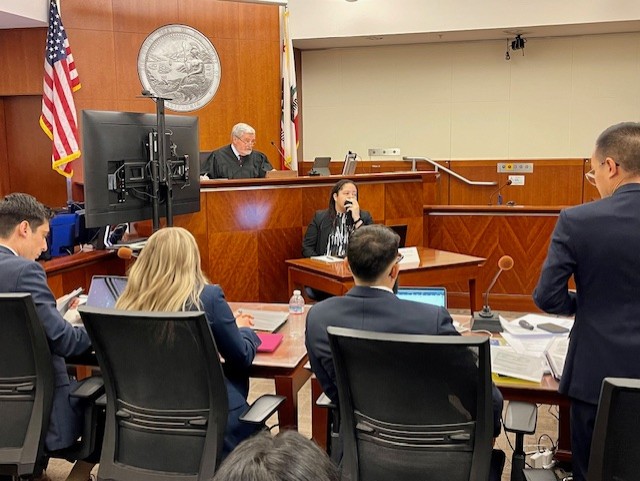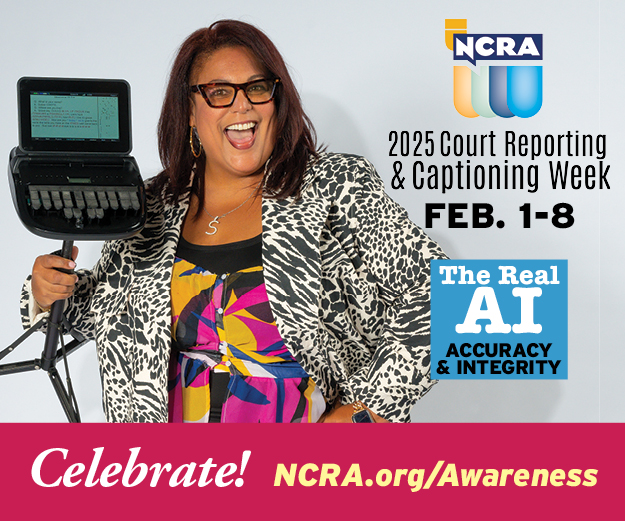Comprehending the Necessary Duty of Court Coverage in Legal Proceedings
Court reporting is usually neglected, yet it's vital in legal procedures. Allow's check out the fundamental features of court reporting and its significance in the legal landscape.
The History of Court Coverage
Court reporting has a rich history that goes back to old human beings, where scribes made use of numerous approaches to catch talked words. The earliest forms of shorthand arised in Greece around 400 BC, enabling thinkers and political leaders to tape speeches rapidly. As you move with background, you'll locate that the Romans embraced similar strategies, refining them to record lawful proceedings. By the 16th century, modern shorthand systems began to take shape, making it possible for court reporters to create accurate transcripts efficiently.
Today, court press reporters play a considerable duty in legal proceedings, guaranteeing that every word talked in the courtroom is precisely documented. Understanding this history highlights the importance of court coverage in preserving a reasonable legal system.
The Abilities Needed for Court Reporters
As a court reporter, you require strong keying abilities to stay on par with the fast-paced dialogue of lawful procedures. Your capacity to pay attention attentively is simply as important, ensuring every word is recorded precisely. Understanding these skills is key to delivering accurate and dependable transcripts.
Efficient Typing Capabilities

Strong Paying Attention Skills
Solid paying attention skills are vital for court reporters, as they need to precisely capture talked words in real time. This ability helps you differentiate between speakers, recognize legal jargon, and adhere to complex discussions. Inevitably, solid listening skills make you a crucial possession in lawful process, making certain clarity and accuracy in the court record.
The Innovation Behind Court Reporting
In the domain of legal proceedings, modern technology plays a necessary duty in enhancing the accuracy and performance of court coverage. You're most likely aware of the traditional stenotype equipment, yet modern-day stenotype reporter now utilize innovative software program that integrates with these devices, allowing real-time transcription. This suggests you can have instantaneous access to the records as the procedures unfold.
Digital audio recording is one more technical development that's getting grip. It catches every talked word, guaranteeing absolutely nothing is missed. Some reporters utilize voice recognition software, which can help enhance the transcription process, though it still needs human oversight for accuracy.
Additionally, cloud-based storage space allows simple gain access to and sharing of transcripts, improving collaboration amongst legal groups. By leveraging these modern technologies, stenotype reporter can give top quality, prompt records that are vital for the legal process. Accepting this tech not only enhances your understanding yet additionally guarantees reliability in lawful documents.
The Court Coverage Process

As lawful process unravel, the court reporting process ends up being crucial in catching every detail accurately. You'll find that a stenotype reporter plays an important role by recording talked words right into created text in real-time. When you enter the court room, the reporter is currently prepared, equipped with specialized devices like stenographic makers and audio recording devices.
During the proceedings, the press reporter listens diligently, typing out everything claimed, from witness statements to lawyers' disagreements. You may discover them stopping briefly occasionally to ensure quality or to request for a repeat if something wasn't clear. After the session, the press reporter reviews the records, making required edits for readability.
This whole process not only guarantees a detailed record however also prepares you for future recommendation throughout allures or situation evaluations. In the busy setting of a court, the court reporting procedure is important for maintaining a precise account of events.
The Importance of Accuracy in Records
While a court press reporter's primary duty is to record talked words, the accuracy of these records is important for the integrity of legal procedures. When you're entailed in a case, you count on specific paperwork to comprehend the occasions and debates presented. Any kind view it of errors in transcription can cause misconceptions, false impressions, or perhaps wrongful judgments.
Exact transcripts guarantee that every information is caught, providing a reliable document for courts, lawyers, and courts. This degree of information is essential during charms or when referencing previous testimonies. If a records has errors, it can weaken the whole lawful process, potentially influencing end results.
Furthermore, exact transcripts copyright the rights of all events included, advertising fairness and transparency. Whether you're a legal representative preparing for test or a witness mirroring on your testament, you can trust that the court press reporter's skill in accuracy plays a substantial duty in your situation's success.
The Function of Court Reporters in Various Lawful Settings
Court reporters play an important role in numerous lawful setups, from tests to depositions and legal hearings. You'll discover that their job warranties every spoken word is accurately recorded, which is important for the legal process. Comprehending exactly how their duties vary throughout these settings can highlight their impact on the justice system.
Court Reporters in Tests
In any type of legal trial, you'll locate that court press reporters play a necessary function in capturing the process with accuracy and accuracy. Court press reporters have to preserve focus and speed, usually using customized devices to keep up with fast-paced discussion. Eventually, court press reporters help support the justice system, guaranteeing transparency and accountability throughout tests.
Depositions and Lawful Hearings
Beyond trials, court reporters likewise play an essential function in depositions and lawful hearings. Court reporters provide real-time transcription solutions, enabling attorneys to comply with along and address any kind of concerns immediately. In short, court press reporters are crucial in preserving the honesty and clarity of the lawful record in depositions and hearings.
Future Patterns in Court Reporting
As modern technology remains to progress, the future of court coverage assures to be shaped by ingenious tools and techniques that enhance precision and performance. You'll likely see enhanced use of expert system and real-time transcription dig this services, enhancing the reporting process. These advancements can assist you gain access to transcripts faster, which can be crucial for your legal methods.
Additionally, integrating video conferencing and remote reporting will become extra typical, enabling you to connect with court reporters from anywhere (court reporting). This flexibility can make depositions and hearings a lot more available, saving both time and sources
You'll also notice a focus on electronic recordkeeping, which simplifies the storage space and retrieval of records. With cloud-based remedies, you'll have the capability to share documents securely and team up with your lawful team in real-time.
Frequently Asked Questions
What Is the Average Income of a Stenotype Reporter?
The average income of a court press reporter differs by location and experience, but you can click here for info expect it to range from around $50,000 to $80,000 yearly. Several elements affect this revenue, including field of expertise and need.
Exactly how Do I Come To Be a Licensed Court Press Reporter?
To become a licensed stenotype reporter, you'll need to finish a court reporting program, pass an accreditation exam, and gain practical experience. It's crucial to remain updated on sector criteria and proceeding education requirements.
What Sorts of Situations Do Court Reporters Cover?
Stenotype reporter cover numerous cases, including criminal tests, civil suits, depositions, and arbitration hearings. You'll locate them documenting everything, guaranteeing exact records for courts, lawyers, and celebrations entailed, capturing every word spoken in legal settings.
Are Court Reporters Required to Have a Degree?
Yes, court press reporters usually require a degree or qualification in court coverage. Lots of programs offer specialized training, guaranteeing you acquire the skills needed for exact transcription and lawful paperwork in different settings.
Can Court Reporters Work Remotely?
